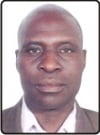The Delicate Dropping of Religious Studies at Ordinary Level by Students in High Density Urban Schools of Harare, Zimbabwe
Abstract
ABSTRACT: With the new developments in technology worldwide, science subjects are dominating in the curricular and given special preference as compared to the arts subjects. This study examined some of the factors that influence pupils to drop Religious Studies at Ordinary Level in Harare Education Province in Zimbabwe. The research focused on aspects such as social problems, intrinsic and extrinsic motivational factors on the student as well as the influence from the teachers and school authorities. Four schools were selected for the study and interviews were done to students sitting for the ordinary level examinations to determine the reasons for dropping religious studies. Key informants interviews were done to respective teachers, school authorities to get their views on the dropping of religious education in schools. The other research instruments used were questionnaires, interviews, and the document analysis in order to gather as much data as possible both from students and school authorities. The research found out that pupils in high density secondary schools of Harare are badly burdened by the poor financial background, lack of learning resources, and uncertainty of the future careers of the subject when they finish school. This was found to affect the schools enrolments for Religious Studies at Ordinary Level as well as sitting for the final ordinary level examinations which was shown to have drastically declined. The study, thus, recommended the promotion of modern and dynamic methods in the teaching of Religious Studies with a new changed path for multi-faith approach in lesson delivery as well as the use of technologies to make the learning exhilarating.
KEY WORDS: Students, school, religious studies, teacher, urban, pupils, ordinary level examinations, social problems, and intrinsic and extrinsic motivational factors.


About the Authors: Fungai Hamilton Mudzengerere, M.Sc. is a Research Fellow at the Faculty of the Built Environment NUST (National University of Science and Technology), P.O. Box AC 939 Ascot, Bulawayo, Zimbabwe; and Edmore Mbokochena, M.Ed. is a Lecturer at the Department of Psychology, Women’s University in Africa, Harare, Zimbabwe. Corresponding author is: fmudzengerere@gmail.com
How to cite this article? Mudzengerere, Fungai Hamilton & Edmore Mbokochena. (2014). “The Delicate Dropping of Religious Studies at Ordinary Level by Students in High Density Urban Schools of Harare, Zimbabwe” in EDUCARE: International Journal for Educational Studies, Vol.6(2) February, pp.189-198. Bandung, Indonesia: Minda Masagi Press owned by ASPENSI in Bandung, West Java; and FKIP UMP in Purwokerto, Central Java, ISSN 1979-7877.
Chronicle of the article: Accepted (December 2, 2013); Revised (January 5, 2014); and Published (February 17, 2014).
Full Text:
PDFReferences
Chivore, B.R.S. (1990). Curriculum Evaluation in Zimbabwe. Harare: Books for Africa.
Cohen, H. (1985). An Introduction to the Sociology of Education. London: Macmillan.
Duncan, J. (1989). The Education of the Ordinary Child. New York: The Ronald Press.
Ezewu, E. (1986). Sociology of Education. London: Longman.
Gunda, M.R. (2011). “From Text to Practice: The Role of the Bible in Daily Living of African People Today” in Bible in Africa Studies, 4.
Haar, M. (1990). Sociology: Themes and Perspectives. London: Unwin-Hyman, 3rd edition.
Haar, G., A. Moyo & S.J. Nondo. (1992). African Traditional Religions in Religious Education: A Resource Book with Special Reference to Zimbabwe. Utrecht: University of Utrecht.
Hanson, M. (1979). Educational Administration and Organisational Behaviour. Massachusetts: Allyn and Babylon.
Haralambos, M. (1985). Sociology: Themes and Perspectives. London: Bell and Hyman.
Iheoma, E.O. (1986). “The Role of Religion in Moral Education” in Journal of Moral Education, 15(2), pp.139-149.
Interview with the heads of departments, at four High-Glen cluster Secondary Schools in Harare Education Province, Zimbabwe: November 1-8, 2012.
Interview with the headmasters, at four High-Glen cluster Secondary Schools in Harare Education Province, Zimbabwe: October 18-25, 2012.
Interview with the Ministry of Education officials, at the Ministry of Education, Sport, and Culture in Zimbabwe: November 9-16, 2012.
Interview with the teachers, at four High-Glen cluster Secondary Schools in Harare Education Province, Zimbabwe: October 9-16, 2012.
Jackson, R. (2004). Rethinking Religious Education and Plurality: Issues in Diversity and Pedagogy. London: Routledge Falmer.
Kasambira, P. (1998). Educational Administration and Management. Harare: College Press.
Leedy, P.D. (1983). Practical Research Planning and Design. New York: Macmillan, 5th edition.
Ndlovu, L. (2013). “Religion Education Teaching in Zimbabwe secondary Schools: The Search for an Authentic Values-Oriented Multi-Faith Religion Education Pedagogical Model” in British Journal of Religious Education, DOI:10.1080/01416200.2013.781500.
Nondo, S. (1991). Multifaith Issues and Approaches in Religious Education with Special Reference to Zimbabwe. Utrecht: RijsksUniversiteit.
Obanya, P. (1985) Teaching Methods Across the Curriculum. London: Billing and Sons Ltd.
Sanders, D.C. (1984). Elementary School: Organisation and Administration. New York: Meredith Publishing Company.
Schoeman, S. (2006). Learning Area Didactics: Teaching Life Orientation. Pretoria: University of South Africa.
Sidhu, K.S. (1984). Methodology of Research in Education. New Delhi: Sterling Publishers.
EDUCARE: International Journal for Educational Studies. Ciptaan disebarluaskan di bawah Lisensi Creative Commons Atribusi-BerbagiSerupa 4.0 Internasional
